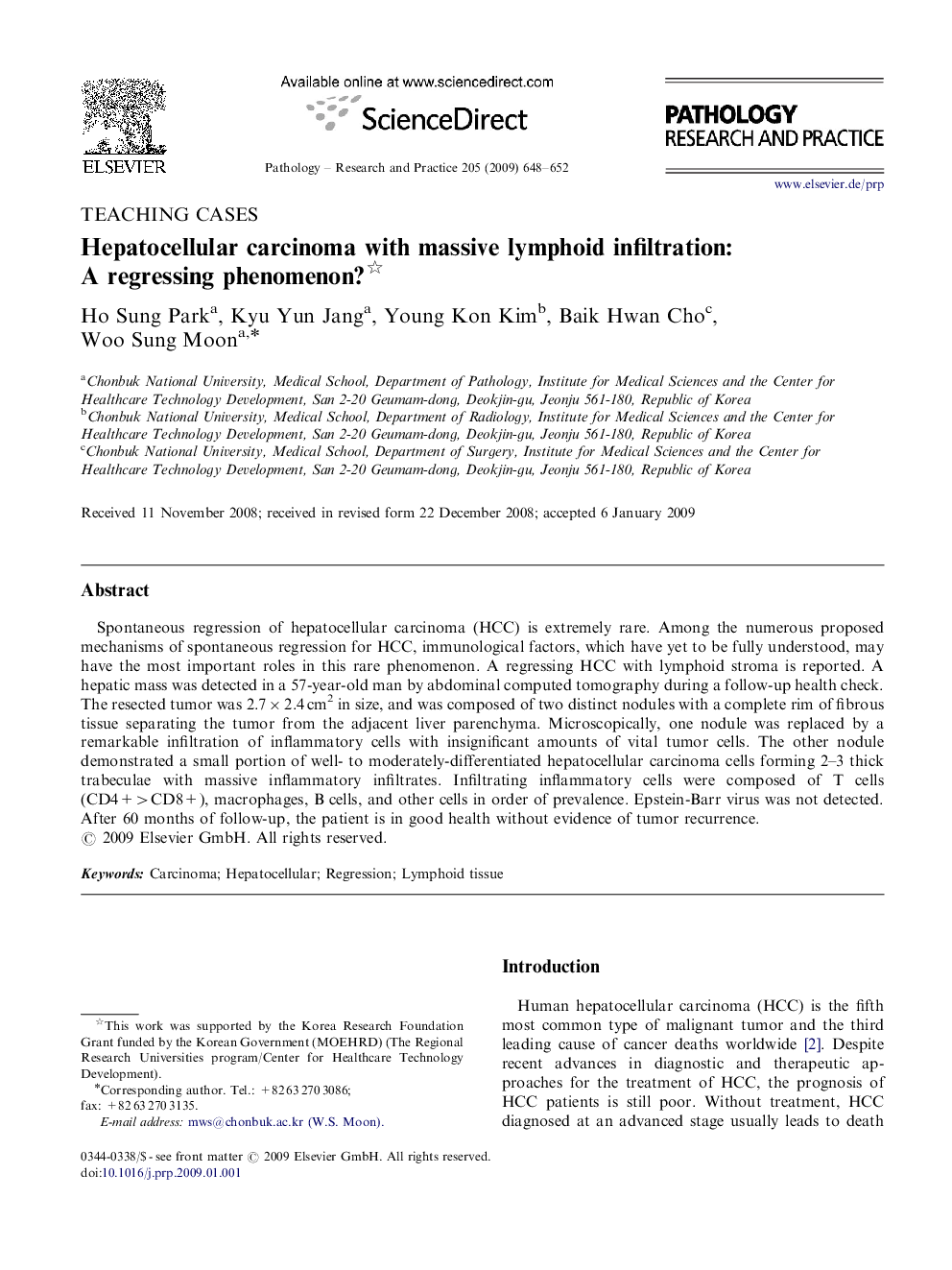| Article ID | Journal | Published Year | Pages | File Type |
|---|---|---|---|---|
| 2156530 | Pathology - Research and Practice | 2009 | 5 Pages |
Spontaneous regression of hepatocellular carcinoma (HCC) is extremely rare. Among the numerous proposed mechanisms of spontaneous regression for HCC, immunological factors, which have yet to be fully understood, may have the most important roles in this rare phenomenon. A regressing HCC with lymphoid stroma is reported. A hepatic mass was detected in a 57-year-old man by abdominal computed tomography during a follow-up health check. The resected tumor was 2.7×2.4 cm2 in size, and was composed of two distinct nodules with a complete rim of fibrous tissue separating the tumor from the adjacent liver parenchyma. Microscopically, one nodule was replaced by a remarkable infiltration of inflammatory cells with insignificant amounts of vital tumor cells. The other nodule demonstrated a small portion of well- to moderately-differentiated hepatocellular carcinoma cells forming 2–3 thick trabeculae with massive inflammatory infiltrates. Infiltrating inflammatory cells were composed of T cells (CD4+>CD8+), macrophages, B cells, and other cells in order of prevalence. Epstein-Barr virus was not detected. After 60 months of follow-up, the patient is in good health without evidence of tumor recurrence.
